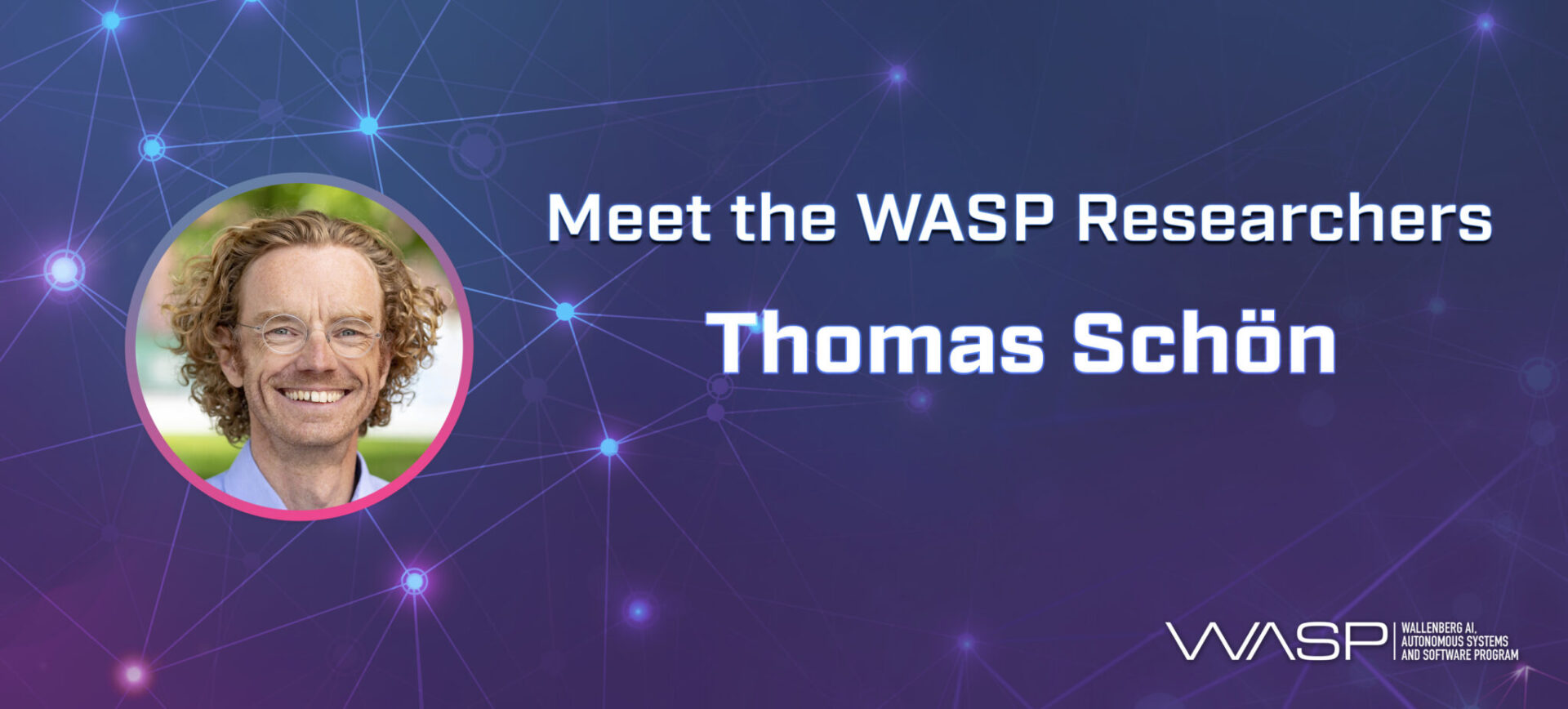WASP is very proud to have so many excellent researchers involved in the program. More than 450 researchers, reaching from assistant to senior professors, are affiliated with WASP. Some are international recruitments who have come to Sweden to join the WASP community, others are already well established in the Swedish academic system.
Through a series of portraits, you get the opportunity to get to know them a little bit better.
Meet Thomas Schön
Thomas B. Schön is a Professor of Artificial Intelligence at the Department of Information Technology at Uppsala University. Professor Schön joined WASP in 2018.
What is your position/role in WASP?
I am a member of the WASP Executive Committee, the Research Management Group for AI/MLX and the University Representative Group (representing Uppsala University). On the operative side I supervise several WASP Ph.D. students (within AI/MLX) and help out in teaching the introductory AI/ML course.
Why did you choose to join WASP?
Ever since I started working with machine learning around 2010, I have been interested not only in the technical developments of the research, but also in contributing towards making sure that Sweden is actively taking part in the development and importantly also that the Swedish society is up to speed with the development in a mature fashion. Here there is a very good overlap with the aim of WASP, which combined with the strong financial resources of WASP made it a very easy choice to join when this opportunity was presented.
What are the benefits you see in WASP?
WASP provides us with the means to establish solid research (both basic and applied) in important areas. The program also makes clear that Sweden as a country finds it very important to be engaged in this research. WASP fosters a good network within Sweden in important areas and across different sectors and organizations. As an individual researcher WASP offers substantial funding opportunities for turning good ideas into new results.
Briefly describe your research topic.
I build mathematical models from measured data. These models are then used either to understand a particular phenomenon or to automatically steer it into a desired state. I take active interest in both basic and applied research.
I am very excited about our new textbook “Machine Learning – A First Course for Engineers and Scientists” that we published with Cambridge University Press earlier this year (freely available: http://smlbook.org/). The book is the result of a course we have developed here at Uppsala University since 2016 and now offer routinely to our engineering students in particular.
When it comes to a more surprising results, we recently submitted the following paper: Antônio H Ribeiro, Dave Zachariah, Thomas B Schön. Surprises in adversarially-trained linear regression. arXiv:2205.12695 (link: https://arxiv.org/pdf/2205.12695.pdf). Here we look into the by now rather well-known fact that state-of-the-art machine learning models can be vulnerable to very small input perturbations that are adversarially constructed. Adversarial training is one of the most effective approaches to defend against such examples. We formulate the training problem as an instance of robust regression and we also study adversarial training in the overparameterized regime, i.e. when there are more parameters than data. These are rather detailed results, but I find it intriguing since it opens up for more analysis and basic understanding on an important topic, some of which we also do in the paper above, but it is just a start.
In what way can your research be of importance to our society in the future?
The most immediate potential that I see is in the work we do jointly with our friends in medicine. More specifically, we have over the past four years worked on the automatic interpretation of electrocardiogram (ECG) measurements of the heart’s rhythm and electrical activity (see e.g. https://www.nature.com/articles/s41467-020-15432-4). We actively work towards putting these results into use in various ways in health care over the coming five years or so (for example via an ERC advance grant of my collaborator Johan Sundström). I also very much hope that the basic research we do when it comes to developing and analyzing new models and algorithms become useful to society in the years to come. Here, the most concrete examples are perhaps via my industrial PhD students.
For more information about Professor Schön, see https://user.it.uu.se/~thosc112/
Published: November 3rd, 2022



